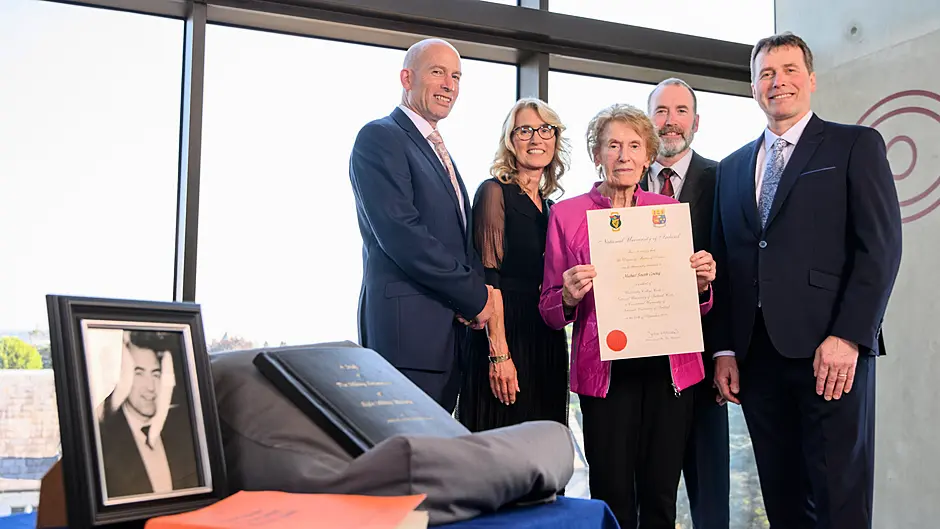A POSTHUMOUS masters degree was awarded to the family of a Kilbrittain man, 56 years after he was tragically killed in the Tuskar Rock air crash, which claimed the lives of all 61 passengers and crew on board.
Michael Cowhig and his two colleagues John F Nyhan and Thomas P Dwane from the Agricultural Research Institute at Moorepark (now Teagasc) in Fermoy had been travelling to England to attend a conference in Reading when the Aer Lingus Flight 712 crashed off Tuskar Rock in Wexford while en route to London from Cork on March 24th 1968.
They were to share their research into milking machine practice at the conference and Michael had submitted a thesis for a masters to UCC shortly before the crash, titled ‘A study of the milking performance of eight milking machines’.
While the process of awarding the masters ended following Michael’s tragic death, it was his family who approached UCC to ask that his work be reviewed for consideration. It has emerged that Michael’s supervisor at the time, professor and former MEP Tom Raftery, had stated that the thesis had in fact been approved at the time for the award of masters.
Michael’s thesis was subsequently reviewed by Prof Alan Kelly, head of UCC’s school of food and nutritional sciences and he recommended that the university recognise it for the award of a masters degree, which was agreed by the relevant college committees.
The masters was presented to Michael’s family by UCC president Prof John O’Halloran at a special ceremony in UCC attended by his family, friends, and former colleagues.
The Cowhig family thanked the president and staff of UCC for their wholehearted efforts in establishing the merits of Michael’s research.
‘We would also like to recognise the support provided in this case by the Teagasc/ Moorepark family. We are very grateful in particular to retired Prof Tom Raftery, whose determined spirit persisted over many years and acted as catalyst to the award of this masters degree,’ the family said.
‘We have always been proud of what our dad achieved in his short lifetime.’
Prof Kelly said that Michael’s thesis was of a ‘very high scientific standard’ and presents an important historical record of technologies which were only newly being put in place on Irish farms.









